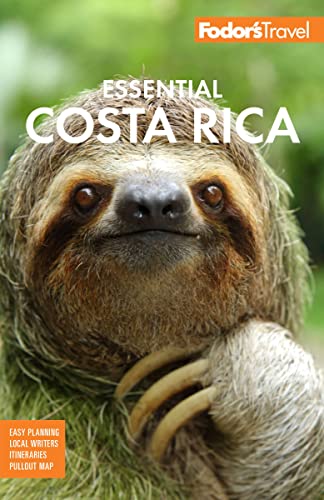Health
COVID-19
A novel coronavirus brought all travel to a virtual standstill in the first half of 2020. Although the illness is mild in most people, some experience severe and even life-threatening complications. Once travel started up again, albeit slowly and cautiously, travelers were asked to be particularly careful about hygiene and to avoid any unnecessary travel, especially if they are sick.
Older adults, particularly those over 65, have a greater chance of experiencing severe complications from COVID-19. The same is true for people with compromised immune systems or those living with some medical conditions, including diabetes, asthma, heart disease, cancer, HIV/AIDS, kidney disease, and liver disease.
Starting two weeks before a trip, anyone planning to travel should be on the lookout for some of the following symptoms: cough, fever, chills, trouble breathing, muscle pain, sore throat, and new loss of smell or taste. If you experience any of these symptoms, you should not travel at all.
And to protect yourself during travel, do your best to avoid contact with people showing symptoms. Wash your hands often with soap and water. Limit your time in public places, and, when you are out and about, wear a cloth face mask that covers your nose and mouth. Indeed, a mask may be required in some places, such as on an airplane or in a confined space like a theater, where you share the space with a lot of people.
You may wish to bring extra supplies, such as disinfecting wipes, hand sanitizer (12-ounce bottles were allowed in carry-on luggage at this writing), and a first-aid kit with a thermometer.
Given how abruptly travel was curtailed in March 2020, it is wise to consider protecting yourself by purchasing a travel insurance policy that will reimburse you for any costs related to COVID-19 related cancellations. Not all travel insurance policies protect against pandemic-related cancellations, so always read the fine print.
Specific Issues in Costa Rica
Costa Rica is one of several Latin American countries where transmission of the mosquito-borne Zika virus has been identified. Because risks to fetal development during any trimester of pregnancy have been reported, the CDC recommends that pregnant women avoid travel to Costa Rica. If travel is necessary, take strict steps to avoid mosquito bites.
The CDC marked Costa Rica as an area infested by the Aedes aegypti (dengue-carrier) mosquito, but not as an epidemic region. The highest-risk area is the Caribbean, especially in the rainy season. The mosquito-borne chikungunya virus began appearing in Costa Rica in 2015. In areas with Zika, chikungunya, and dengue, use mosquito nets, wear clothing that covers your whole body, and use repelente (insect repellent) and espirales (mosquito coils), sold in supermarkets, pharmacies, and, sometimes, small country stores. Repellents made with DEET or picaridin are most effective. Perfume and aftershave can actually attract mosquitoes.
It's unlikely that you will contract chikungunya or dengue, but if you start suffering from high fever, the shakes, or joint pain, make sure you ask to be tested for these diseases at a local clinic. Your embassy can provide you with a list of recommended doctors and dentists. Such symptoms in the weeks following your return should also spark concern.
Poisonous snakes, scorpions, and other pests pose a small threat in Costa Rica.
Water is generally safe to drink, especially around San José, but the quality can vary; to be safe, drink bottled water. In rural areas you run a mild risk of encountering drinking water, fresh fruit, and vegetables contaminated by fecal matter, which in most cases causes a bit of traveler's diarrhea but can cause leptospirosis (which can be treated by antibiotics if detected early). Stay on the safe side by avoiding uncooked food, unpasteurized milk, and ice—ask for drinks sin hielo (without ice). Ceviche, raw fish cured in lemon juice—a favorite appetizer, especially at seaside resorts—is generally safe to eat.
Mild cases of diarrhea may respond to Imodium (known generically as loperamide) or Pepto-Bismol, both of which can be purchased over the counter. Drink plenty of purified water or tea; chamomile (manzanilla in Spanish) is a good folk remedy. In severe cases, rehydrate yourself with a salt-sugar solution (½ teaspoon salt and 4 tablespoons sugar per quart of water).
Heatstroke and dehydration are real dangers, especially for hikers, so drink lots of water. Take at least 1 liter per person for every hour you plan to be on the trail. Sunburn is the most common traveler's health problem. Use sunscreen with SPF 30 or higher. Most pharmacies and supermarkets carry sunscreen in a wide range of SPFs, though it is relatively pricey.
The greatest danger to your person actually lies off Costa Rica's popular beaches: riptides are common wherever there are waves, and tourists run into serious difficulties in them every year. If you see waves, ask the locals where it's safe to swim; and if you're uncertain, don't go in deeper than your waist. If you get caught in a rip current, swim parallel to the beach until you're free of it, and then swim back to shore. Avoid swimming where a town's main river opens up to the sea. Septic tanks aren't common. Do not fly within 24 hours of scuba diving.
Over-the-Counter Remedies
Farmacia is Spanish for pharmacy, and the names for common drugs like aspirina, ibúprofen, and acetaminofina (Tylenol or Panadol) are basically the same as they are in English. Some drugs for which you need a prescription back home are sold over the counter in Costa Rica. Pharmacies throughout the country are generally open from 8 to 8. Some pharmacies in San José stay open 24 hours.
Government facilities—the so-called Caja hospitals (short for Caja Costarricense de Seguro Social, or Costa Rican Social Security System)—and clinics are of acceptable quality, but notoriously overburdened. Private hospitals are more accustomed to serving foreigners.




